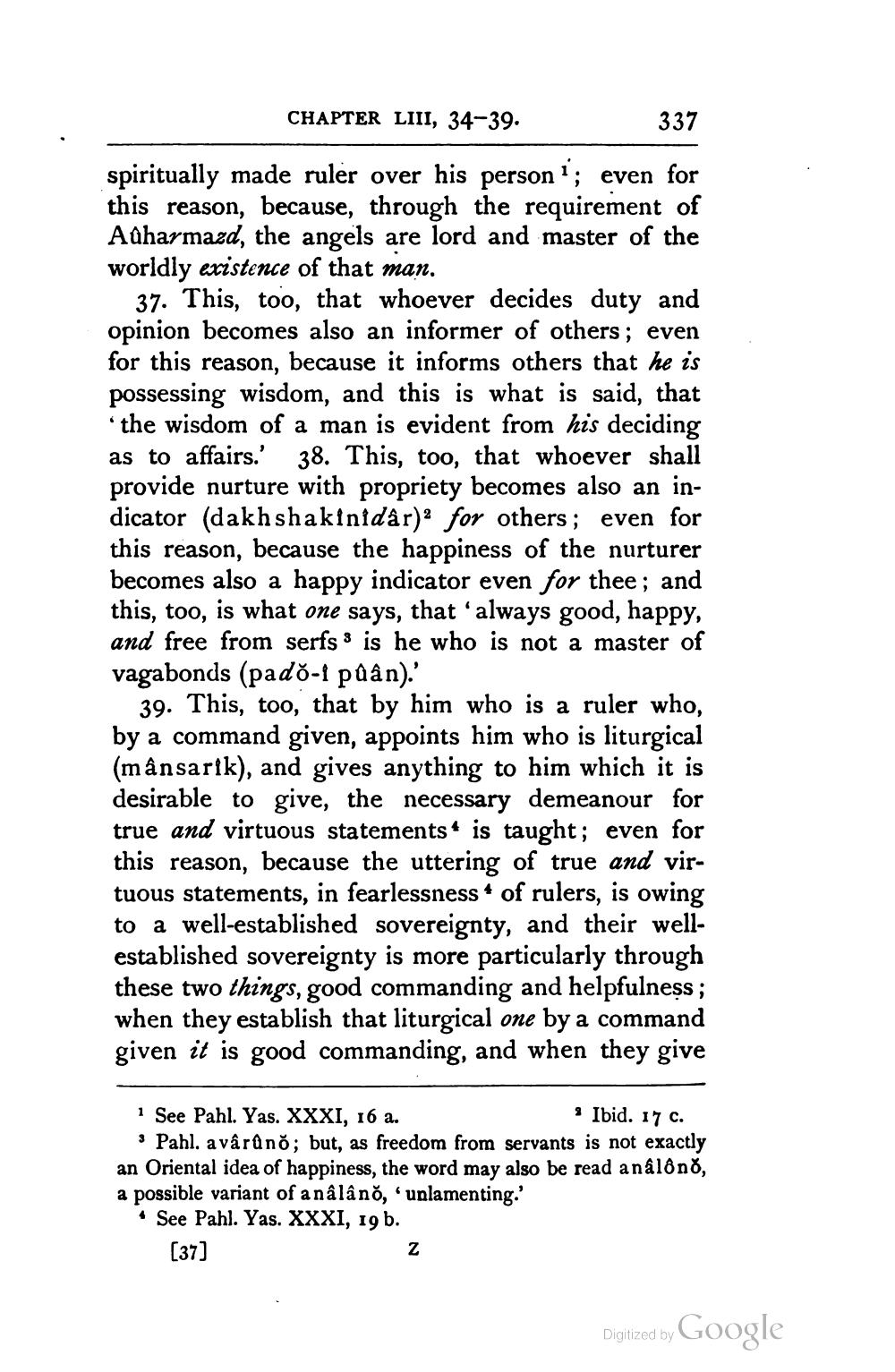________________
CHAPTER LIII, 34-39.
337
spiritually made ruler over his person 1; even for this reason, because, through the requirement of Aûharmazd, the angels are lord and master of the worldly existence of that man.
37. This, too, that whoever decides duty and opinion becomes also an informer of others; even for this reason, because it informs others that he is possessing wisdom, and this is what is said, that 'the wisdom of a man is evident from his deciding as to affairs.' 38. This, too, that whoever shall provide nurture with propriety becomes also an indicator (dakhshakinidâr) for others; even for this reason, because the happiness of the nurturer becomes also a happy indicator even for thee; and this, too, is what one says, that 'always good, happy, and free from serfs is he who is not a master of vagabonds (padŏ-i pûân).'
39. This, too, that by him who is a ruler who, by a command given, appoints him who is liturgical (mânsarik), and gives anything to him which it is desirable to give, the necessary demeanour for true and virtuous statements is taught; even for this reason, because the uttering of true and virtuous statements, in fearlessness of rulers, is owing to a well-established sovereignty, and their wellestablished sovereignty is more particularly through these two things, good commanding and helpfulness; when they establish that liturgical one by a command given it is good commanding, and when they give
1 See Pahl. Yas. XXXI, 16 a.
Ibid. 17 C.
Pahl. avârûno; but, as freedom from servants is not exactly an Oriental idea of happiness, the word may also be read anâlôno, a possible variant of anâlânŏ, 'unlamenting.'
See Pahl. Yas. XXXI, 19 b.
[37]
Z
Digitized by Google




